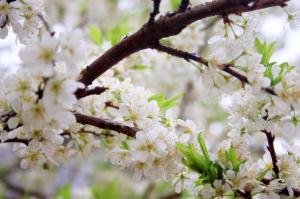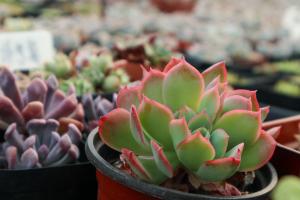How Does Spraying Water on Plants Protect Them from Freezing
As winter approaches, gardeners and farmers take measures to protect their crops from the frosty weather. One of the methods commonly used to prevent plants from freezing is spraying water on them. At first glance, it seems counter-intuitive to spray water on plants in cold weather. But in reality, this method works as a protective shield against freezing. In this article, we'll explore how spraying water on plants protects them from freezing.
What Happens to Plants When They Freeze
Plants, like most living creatures, need a balanced environment to survive. When it comes to temperature, a plant's optimal range varies based on its species. However, most plants begin to suffer damage or die when the temperature drops below freezing. The water inside the plant cells expands when it freezes, causing the cells to rupture. As a result, the plant becomes wilted, and its leaves turn brown and crispy. This ultimately leads to the death of the plant.
How Does Spraying Water Help
When water freezes, it releases heat — the heat of fusion. Spraying water on plants in the evening or at night provides a thin layer of water on the plant's surface. As the temperature continues to drop, the water starts to freeze. As the water freezes, it releases heat to the surrounding environment, thus insulating the plant. This layer of ice on the plant's surface serves as a protective shield against the cold air, reducing the temperature changes on the plant's surface. This, in turn, prevents the plant from freezing up until the temperature reaches around 25°F.
Important Considerations When Spraying Water on Plants
While spraying water on plants can be beneficial, there are several things to consider before using this method:
It's crucial to begin spraying water on plants before the temperature reaches freezing — around 32°F — and to stop when the temperature gets too cold, around 25°F. Otherwise, the water will freeze and cause more harm than good.
The quantity of water sprayed must be carefully considered. Too much water can cause the plant to become top-heavy, leading to the plant's roots being lifted from the ground. On the other hand, too little water won't be enough to provide insulation to the plant's surface.
The time of day when the water is sprayed also affects the outcome. Spraying water early in the day simply results in ice melting in the sun, which does not provide much insulation against freezing. Conversely, spraying the water at night allows the ice to form a protective layer over the plant's surface.
It's also essential to monitor the plant after spraying water to ensure the protective layer is intact and the water is not causing frost damage to the plant itself or the surrounding soil.
The Bottom Line
Spraying water on plants during freezing temperatures can be an effective and cost-efficient method for protecting them. However, it requires careful monitoring and consideration to ensure it's done correctly. Done correctly, this method can keep plants healthy and prevent damage or death caused by freezing temperatures.

 how many times do yo...
how many times do yo... how many planted tre...
how many planted tre... how many pine trees ...
how many pine trees ... how many pecan trees...
how many pecan trees... how many plants comp...
how many plants comp... how many plants can ...
how many plants can ... how many plants and ...
how many plants and ... how many pepper plan...
how many pepper plan...































